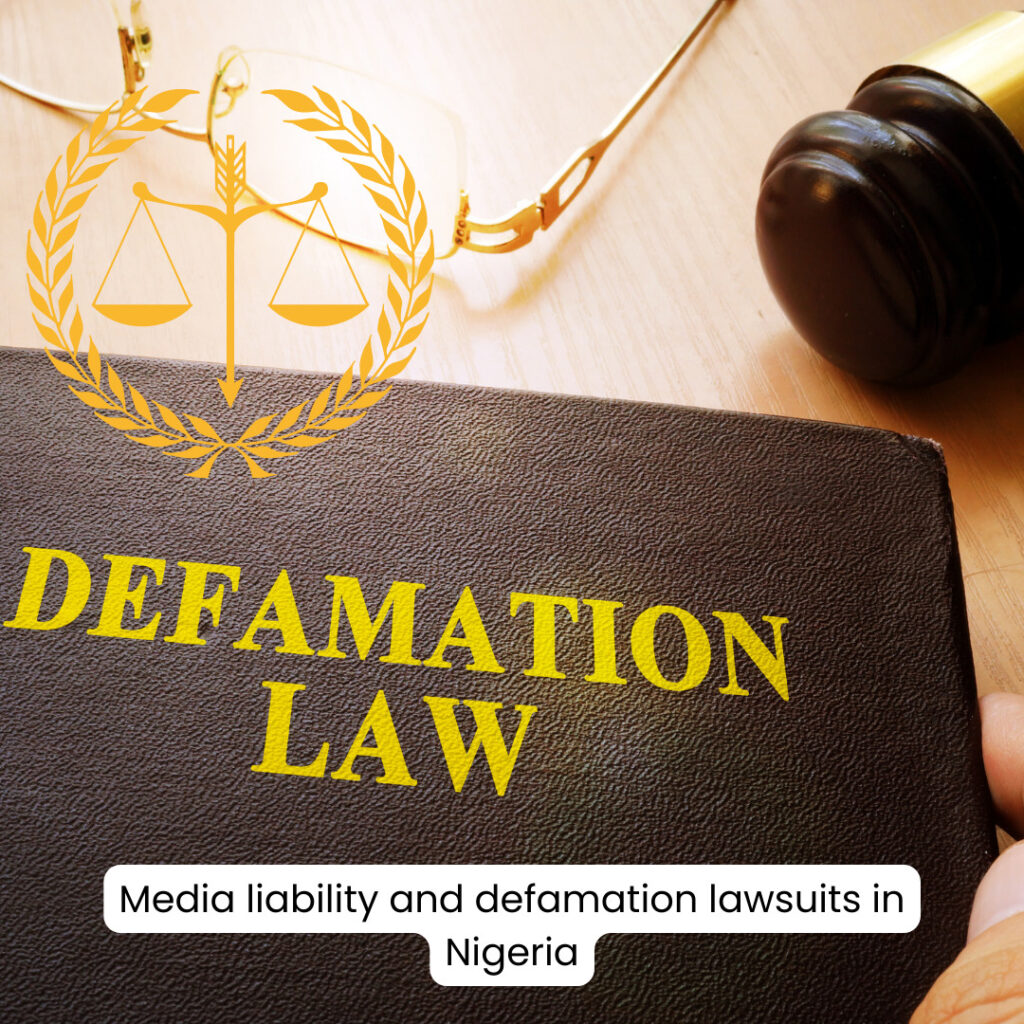Media Liability and Defamation Lawsuits in Nigeria
Media, as a powerful force in shaping public opinion and disseminating information, carries both great influence and significant responsibilities. In Nigeria, a country with a diverse and evolving media landscape, the complex interplay between media liability and defamation laws is a topic of crucial importance. While freedom of the press is a cornerstone of democratic societies, it must be exercised responsibly to avoid infringing on individuals’ rights and reputations. In this article, we delve into the world of media liability and defamation lawsuits in Nigeria, exploring their significance, key considerations, challenges, and implications for both media professionals and the public.
The Balancing Act of Media Liability
Media liability refers to the legal responsibility of media organizations and professionals for the content they produce and disseminate. It holds the media accountable for ensuring that their reporting is accurate, fair, and respectful of individuals’ rights, while upholding journalistic ethics and standards.
Understanding Defamation
Defamation involves making false statements that harm a person’s reputation. It can take the form of libel (written or printed defamation) or slander (spoken defamation). In the context of media, defamation lawsuits can arise when published content damages an individual’s reputation, credibility, or standing in society.
Importance of Responsible Reporting
Responsible reporting is crucial for maintaining public trust, credibility, and ethical standards in the media. Journalists and media organizations have a duty to verify information, ensure fairness, and uphold the principles of accuracy and objectivity in their reporting.

Key Considerations in Nigeria
The interplay between media liability and defamation lawsuits in Nigeria involves several key considerations:
- Freedom of Expression: Balancing the right to freedom of expression with the need to prevent harm to individuals’ reputations and dignity is a delicate ethical and legal challenge.
- Public Interest: Reporting on matters of public interest, even if they involve negative portrayals of individuals, is protected by journalistic principles and legal standards.
- Journalistic Standards: Upholding journalistic standards and ethics, such as fact-checking and providing right of reply, can mitigate the risk of defamation lawsuits.
- Legal Framework: Nigeria’s legal framework includes defamation laws that provide avenues for individuals to seek redress for harm caused by false and damaging statements.
Challenges and Opportunities
Media liability and defamation lawsuits in Nigeria present both challenges and opportunities:
- Censorship Concerns: Fear of defamation lawsuits can lead to self-censorship among media professionals, potentially limiting robust and investigative journalism.
- Access to Justice: Ensuring that individuals have fair access to justice and legal remedies for defamation while safeguarding media freedom is essential.
- Digital Landscape: The proliferation of online platforms and social media presents challenges for defining and regulating liability in the digital space.
- Media Literacy: Promoting media literacy among the public can empower individuals to critically assess media content and differentiate between credible reporting and misinformation.
Charting the Path Forward
The future of media liability and defamation lawsuits in Nigeria holds potential:
- Ethical Training: Providing training and education on media ethics and responsible reporting can equip journalists with the tools to avoid defamation pitfalls.
- Alternative Dispute Resolution: Exploring alternative methods, such as mediation and arbitration, for resolving defamation disputes can offer quicker and less adversarial solutions.
- Legal Reforms: Regular review and reform of defamation laws to align with international standards and evolving media practices can strike a fair balance between press freedom and individuals’ rights.
- Public Dialogue: Open dialogue between media professionals, legal experts, and civil society can lead to a nuanced understanding of media liability and defamation issues.
Conclusion
Media liability and defamation lawsuits in Nigeria reflect the intricate relationship between freedom of the press, individual rights, and responsible journalism. By fostering a media environment where responsible reporting, ethical standards, and accurate fact-checking prevail, Nigeria can strike a balance that upholds both media freedom and individual dignity. As Nigeria’s media landscape continues to evolve, an unwavering commitment to ethical reporting, legal reform, and public discourse will contribute to a media sector that informs, empowers, and enriches society while respecting the rights and reputations of all individuals involved.
